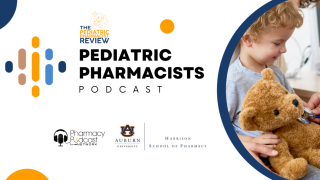Diabetes Drug Found Ineffective Against COVID-19

AstraZeneca and Saint Luke’s Mid America Heart Institute announced high-level results of the DARE-19 Phase III trial assessing the potential of Farxiga to treat patients hospitalized with COVID-19 who are at risk of developing serious complications.
The companies confirmed on April 12, 2021, this trial did not achieve statistical significance for the primary endpoint of prevention measuring organ dysfunction and all-cause mortality and the primary endpoint of recovery measuring a change in clinical status (from early recovery to death) at 30 days.
The safety and tolerability profile for Farxiga at 30 days in the trial was consistent with the medicine’s well-established safety profile.
The DARE-19 Phase III trial evaluated the safety and efficacy of a sodium-glucose co-transporter-2 (SGLT2) inhibitor in about 1,250 patients hospitalized with COVID-19. They also have risk factors for developing serious complications, including hypertension (HTN), type-2 diabetes (T2D), atherosclerotic cardiovascular disease (ASCVD), heart failure (HF), or chronic kidney disease (CKD) Stages 3-4.
Cardiac, renal, and metabolic comorbidities have been associated with poor outcomes and death in patients hospitalized with COVID-19.
Mikhail N. Kosiborod, M.D., a cardiologist at Saint Luke’s Mid America Heart Institute, Vice President of Research at Saint Luke's Health System, and principal investigator of DARE-19, stated in a related press release, “DARE-19 provided important data on the potential benefits and risks of using SGLT2 inhibitors to treat hospitalized patients with COVID-19.”
“While the trial did not achieve statistical significance, the findings are very interesting and valuable and will inform future clinical science.”
“Also, of importance, we learned that dapagliflozin’s well-established safety profile was consistent in DARE-19.”
Sir Mene Pangalos, EVP, BioPharmaceuticals R&D, AstraZeneca added, “Before the DARE-19 Phase III trial, there was little data on the use of SGLT2 inhibitors in hospitalized patients with COVID-19, and we have now helped to fill this knowledge gap.”
For nearly a decade, Farxiga has been an effective monotherapy and part of combination therapy as an adjunct to diet and exercise to improve glycaemic control in adults with T2D.
Farxiga (dapagliflozin) is a first-in-class, oral, once-daily SGLT2 inhibitor.
The research for Farxiga is advancing from cardiorenal effects to prevention and organ protection as science continues to identify the underlying links between the heart, kidneys, and pancreas. Damage to one of these organs can cause the other organs to fail - contributing to leading causes of death worldwide, including T2D, HF, and CKD.
Farxiga is also the first SGLT2 inhibitor approved for the treatment of HFrEF in adults with and without T2D.
In August 2020, results from the DAPA-CKD Phase III trial demonstrated that Farxiga achieved an unprecedented reduction in the composite risk of kidney failure and CV or renal death in patients with CKD with and without T2D versus placebo.
It is now the first SGLT2 inhibitor shown to significantly improve overall survival in a renal outcomes trial for this patient population and provide organ protection.
However, Farxiga is not yet approved for the treatment of CKD.
Cambridge, UK-based AstraZeneca (LSE/STO/Nasdaq: AZN) is a global, science-led biopharmaceutical company that focuses on the discovery, development, and commercialization of prescription medicines, primarily for the treatment of Oncology, Cardiovascular, Renal & Metabolism, and Respiratory & Immunology.
PrecisionVaccinations publishes research-based news.
Our Trust Standards: Medical Advisory Committee

























